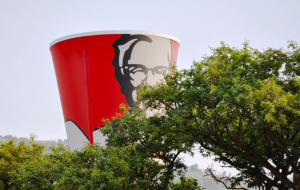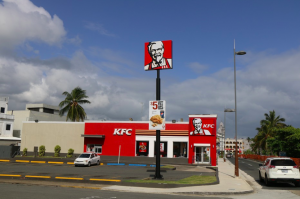Can you invest in franchise businesses in the Philippines? Yes you can! With a population of 115 million this is the 7th largest franchise market in the world according to the Philippines’ Department of Trade and Industry (DTI) Secretary Alfredo Pascual. The DTI secretary says growth in this industry will continue due to the ever expanding middle class of the country that spends money with these global brands.
But just because you can invest in a franchise in the Philippines doesn’t mean it’s easy. In this guide, I discuss everything you need to know about franchising in the Philippines including the requirements, challenges, and profit potential. I even share some of the most popular franchises to start in the country. You can also take our 7-minute franchise quiz to be matched with an opportunity that fits your interests and investment level.
Page Contents
Can You Invest In A Franchise in the Phillipines?
You can invest in franchises in the Philippines. As mentioned earlier this country is the #7 market for franchises globally. Globally recognized brands like McDonald’s is popular in the Philippines in addition to regional players like Jollibee who US residents may not be familiar with.
Similar to other countries, a franchise can be a good investment if the company has business plan that resonates with consumers in the region. If you’ve done your research and select the right location, you will have a good chance on achieving ROI if you execute the right plan.
If you don’t want to become the sole owner of a franchise, you may also choose to register your business as a partnership or corporation. That way, you can be a co-owner and invest in a franchise with less financial exposure.
Top Franchises in the Philippines
There are many successful franchises in the Philippines. Some of them have even grown to expand worldwide. Here are a of the top options.
Jollibee
- Franchising since: 1979
- Franchising Fee: unknown
- Investment: Php35 million to Php55 million
Jollibee is one of the top franchises in the Philippines. They started in 1975 selling ice cream at first but grew to include more in their menu such as burgers, sodas, their Filipino-style sweet spaghetti, and the now famous fried Chicken Joy.
At present, Jollibee Foods Corporation has over 5,800 stores around the world. They also own a number of brands such as Chowking, Greenwich Pizza, and Mang Inasal Chicken. They also own a large percentage of distributing international brands such as Tim Ho Wan, Yoshinoya, and Panda Express in the Philippines.
McDonald’s
- Franchising since: 1985
- Franchising Fee: Php1,150,000
- Investment: Php45 million to Php60 million
While McDonald’s isn’t a Filipino brand, the burger chain has become a popular here like so many other countries. They’re considered Jollibee’s close competitor through the years with McDonald’s even offering their own version of spaghetti along with fried chicken and rice. McDonald’s has over 300 stores in the Philippines and more than 100 franchisees.
Siomai House
- Franchising since: 2008
- Franchising Fee: Php313,600
- Investment: Php280,000 to Php350,000
Siomai House is a food cart franchise in the Philippines that has over 800 outlets. Their menu is simple: steamed siomai (a Filipino-Chinese dumpling made with your choice of beef or pork) and ice-cold gulaman (a drink made of brown sugar, water, pearls, and gelatin). The simplicity of Siomai House along with its affordable investment has made them a popular small business franchise in the Philippines.
Potato Corner
- Franchising since: 1993
- Franchising Fee: Php150,000
- Investment: Php290,000 to Php410,000
Potato Corner is a brand that is well-known not just in the Philippines but all over the globe including the United States, Australia, Hong Kong, Thailand, Malaysia, and New Zealand. They’re best known for their flavored fries such as sour cream, barbecue, cheese, wasabi, and many more. They have over 900 outlets in the Philippines and are mostly located in malls and schools.
The Generics Pharmacy
- Franchising since: 2007
- Franchising Fee: Php150,000
- Investment: Php600,000 to Php800,000
Drug stores are also one of the major franchises in the Philippines. One of the most popular drug stores is The Generics Pharmacy that is known for selling affordable generic brands of medicine to Filipinos. This brand has over 2,000 branches all over the Philippines.
Goldilocks
- Franchising since: 1991
- Franchising Fee: Php250,000
- Investment: Php3.9 million to Php6 million
Goldilocks is a chain of bakeshops in the Philippines. This chain of bakeries has been in business more than 50 years selling cakes, pastries, and even serving hot meals. They have more than 500 stores operating globally.
Advantages and Disadvantages of Franchising in the Philippines
One might look at franchising as a prettily wrapped present wherein a business franchise may seem like it can bring you instant high profits from the outside. But when you tear off the wrapping and read the details, you’ll find that there’s more to franchising than it seems.
Of course, there are plenty of advantages and disadvantages that a business franchise can bring. We’ll start off with the pros:
Advantages
1. Recognized Brand Name
So let’s say you started a business from scratch. You’d have to work extra hard in advertising your business so you can get your name out there. Sometimes, a business is lucky and they get viral and gather a lot of customers. But most of the time, businesses have to put in the extra effort to make sure their brand name is seen and heard of by many.
With franchising, you already get brand recognition since most business franchises are already well-known. In addition, business franchises already have marketing and advertising strategies on the ready so you don’t have to do it yourself.
2. Proven Business Plan
When you franchise a business, you don’t just have the rights to sell their products. What you get is also a proven business plan that works. You’re assured that operations will run smoothly due to a fixed plan. Workflows are already set and organized so all you have to do is just follow them.

You’ll find the Golden Arches in the Philippines.
3. Support and Training
Business franchises provide support and training so you don’t have to do it. Did your POS system go down? Do you need to hire and train staff? Are you in need of equipment? Business franchises will have all of these things ready and prepared for you so you don’t need to worry about juggling so much stuff.
4. Business Network
It’s important for a business owner to form a network of business suppliers so they don’t have a hard time looking for stuff and equipment to purchase. Not only that but having a good relationship with a business supplier can also give one access to discounted prices or get exclusive access.
When you franchise a business, you have access to this network of suppliers already. In addition, business franchises sometimes let their franchisees attend conventions that broaden their business network.
5. Regular Customers
Most brands have regular customers or followers. And if you decide to franchise a business that has a cult following, you’ll be bringing them to you as well. You won’t have to worry about whether or not you’ll get any sales at the end of the day because it’s most likely that you’ll do so.
Disadvantages
Franchising can pose some challenges too. Here are a few to expect so you can prepare for them:
1. Restrictions
Franchising a business has a lot of restrictions. For instance, you can’t sell products other than the ones that the franchisor provided. You are also bound by the franchise agreement to strictly follow their designs, workflow, equipment, and many more. So if you decide to franchise a restaurant, you won’t be able to introduce anything else on the menu except the ones that the franchisor provided.
You would also need to source your ingredients from the franchisor’s list of accredited suppliers. Your operating hours will also follow what is indicated by the franchisor. So if you’re used to having some free time during the holidays, you might want to rethink those plans if your mother company decides in opening on a major holiday.
Regular Customers
Most brands have regular customers or followers. And if you decide to franchise a business that has a cult following, you’ll be bringing them to you as well. You won’t have to worry about whether or not you’ll get any sales at the end of the day because it’s most likely that you’ll do so.
2. Profit
This one can both be an advantage and disadvantage at the same time. Not all franchises will be able to see high profits. There are several factors that can affect these such as territory, operating expenses, and ongoing fees. Yes, you may see profits but it might not be as high as you would expect it to be.
It’s important to read the contract or franchise agreement (usually known as a Franchise Disclosure Document) that is usually provided. There you’ll find all the fees and how much profit to expect although again it depends on your performance. It is best to have a financial advisor go through this document so that you’ll know how long your investments can be repaid and how much profit you should be aiming to know that business is doing well.
3. High Cost and Ongoing Fees
Franchises are expensive. Apart from the high cost, there are ongoing fees such as royalty fees and renewal fees that can be considered big expenses. Check with the brand how much to expect on your initial investment and also compute the expenses you will encounter even after your grand opening.

Fried chicken is a top performing food item in the Philippines.
4. Competition
Franchising, like all other businesses, invites competition. You’ll need to study which ones out there are the best and will work in your targeted area.
Sometimes the competition can even be between the same franchised brands. From the outside, customers will just treat the brand as one. But they don’t realize that one location is competing with another location. This is why exclusive territory rights are a must before signing on to franchise a business. You want to make sure that you’ll be able to cover an area without any of the same franchise competing with yours. You can check this out in the contract agreement or discuss it with the franchise representative on your initial interview.
5. No Privacy
Are you used to keeping your financial data to yourself? Then you’ll have to say goodbye to your privacy when you decide to franchise.
When you franchise a business, you have to expect that your business’s financial accounts will be seen by the franchisor. There isn’t any privacy when it comes to this part since it would be agreed upon between you and the franchisor that they would be able to monitor your overall performance.
Steps to Franchising in the Phillipines
Keep in mind that there are no fixed steps when you franchise a business in the Philippines. Each business will have their set of steps when it comes to franchising. Some will require a lot of documents while others will be fine with the basics.
Here’s what you can expect:
Step 1 – Submit Your Application
Businesses may either have their application forms available to download online or you might need to approach a franchise representative personally to express your intent to franchise by submitting a Letter of Intent. An initial screening or interview will follow upon receiving your application.
Step 2 – Submit Requirements
Requirements may vary from franchise to franchise but these are the usual documents being asked:
- Letter of Intent to franchise
- Proposed site plan – this includes the vicinity map of your proposed location of the franchise and photos of the area
- Contract of Lease – this is if you’re renting the area
- Government IDs
- Resume
Step 3 – Interview
A formal interview will be conducted between you and the franchise representative. Be prepared to answer questions regarding your business plan and to show proof of your liquid capital or net worth when asked.
Step 4 – Site Inspection
It may be possible that the franchise development team will ask to inspect the site you are proposing to put up your franchise.
Step 5 – Contract Signing
You’ll get to read more of the details in franchising the business such as specific fees and breakdown. Once both parties have mutually agreed to all terms, you will get to sign the contract which makes the franchise official and sets things in motion. You will also start paying the fees as discussed.
Step 6 – Store Construction and Training
By this phase, your store will be constructed and your training as franchisee will start. You will be taught the ropes on how to operate the business. Staff training will also commence in preparation for your grand opening.
Step 7 – Opening
Once the store is up, all staff are trained, and all the equipment have been purchased, then your store is ready to open.
Franchising Tips in the Philippines
Here are some tips to follow before you sign up for a franchise in the Philippines:
Research
Before you choose a business to franchise, make sure to do your research. This includes reading up on the franchise’s financial statements (if they’re made public), catch up on the latest news regarding the franchise, check their history of success or if they ever experienced filing for bankruptcy, and the services that they offer. Know your target market. Do your research on the franchise’s competition as well so you know who you’re playing up against. It will also help you answer the questions asked in the initial interview. It might just impress the franchisors on how well you know the business.
Budget
Franchises in the Philippines can start at an affordable rate of Php12,500 or as expensive as Php35 million. With this in mind, it’s best to lay down what your budget will be. You also need to take into account the ongoing fees and expenses such as royalty fees (if there are any).
You can also ask if franchises can help you with financing. If not, there are other ways to finance your franchise venture such as applying for a loan in banks.

You can find KFC in Manilla.
Location
Choosing the right location for your franchise is crucial. You don’t want to put a restaurant franchise in an area where there is less traffic and won’t likely be visited. This can harm your franchise before you’ve even started. So choose your location wisely and work hand in hand with the franchise’s development team in picking a good spot for your upcoming business.
Some franchises will also only entertain your intent to do business with them if you own a piece of land.
Legitimacy
Always check the legitimacy of the franchise you’re eyeing before signing any contract. You don’t want to be scammed or fall into a trap. Check with the certified agencies listed above if the businesses you want to franchise are registered with them. Also ask for any legal documentation from them that proves they are a legitimate franchise.
Register Your Business
In the Philippines, it is a must for a franchisee to register with the Department of Trade and Industry (DTI) for a permit, business or mayor’s permit, with the Bureau of Internal Revenue (BIR), and with the Securities and Exchange Commission (SEC). If a franchisor asks for a proof of business name, you can show these permits and documents to them. Remember that failure to register your business can lead to penalties and additional fees.
Philippine Franchise Facts
Here are a few facts and data points about the franchise industry in the Philippines:
- More than 90% of the foreign brands that are franchised in the Philippines are American brands.
- The franchise market in the Philippines contributes 7.8% to the country’s Gross Domestic Product (GDP).
- It is estimated that there are over 1,800 franchised brands in the food category alone.
- Non-food franchises are starting to emerge in the Philippines. Examples of these are gyms, clinics, laundry services, and beauty products.
- The number one franchise in the Philippines by units according is Jollibee.
Top performing franchises that originated in the Philippines but are also doing well overseas is Potato Corner, Jollibee, Bench Clothing store, Goldilocks, and Max’s Restaurant.
What is Franchising?

KFC is another franchise you’ll recognize here.
Franchising is a business concept wherein the business owner, known as the franchisor, gives permission to an individual or group, known here as the franchisee, to sell the franchisor’s products or services.
There is a franchise fee involved in which the franchisee pays the franchisor to be able to use the brand such as their trademarked business plans, designs, and logo. There are also several annual fees to continue to operate the franchised business such as royalty fees that are taken from the gross sales.
Franchising in the Philippines can be traced as far back as 1910 where the first franchised product distributorship was Singer Sewing Machine. From there franchising grew to accommodate food and services, retail, and other businesses such as health, gyms, and even hospitality and management services.
There are 3 types of franchise opportunities in the Philippines:
- Business Format – This type of franchising involves getting the rights to run the franchisor’s entire operating system. Examples of these are fast food businesses and retail such as the likes of Jollibee and Bench Clothing
- Product Distribution – This type of franchising allows the franchisee to distribute the franchisor’s products. Examples of these are computers, vending machines, sodas, car parts, and the like.
- Job Franchise – This type of franchising is for small businesses that require minimal operations. Franchisees only need to pay the franchise fee and some startup costs and they’re ready to go. Examples of these are cell phone repair services, plumbing services, mobile coffee businesses, and travel agencies.
For the longest time the Philippine franchising system has been following the US franchising system. There are also no laws that regulate the country’s way of franchising. International franchising systems are practiced due to the growth of foreign franchisors.
So how can you be assured that the franchise is legitimate? There are certified agencies that can help.
- Philippine Franchise Association (PFA)
- Bureau of Small and Medium Enterprise Development (BSMED)
- Philippine Trade Training Center (PTTC)
- Securities and Exchange Commission (SEC)
- Bureau of Domestic Trade (BDT)
- Bureau of Trade Regulation and Consumer Protection (BTRCP)
Franchising in the Philippines has become successful and is responsible for providing the people with two million direct and indirect jobs.





